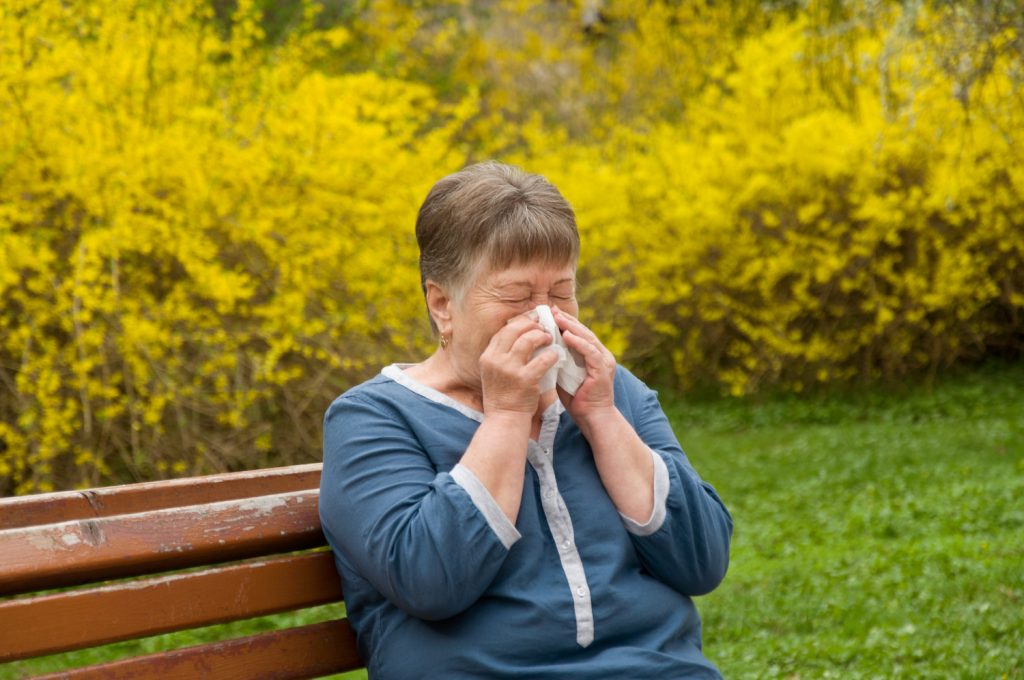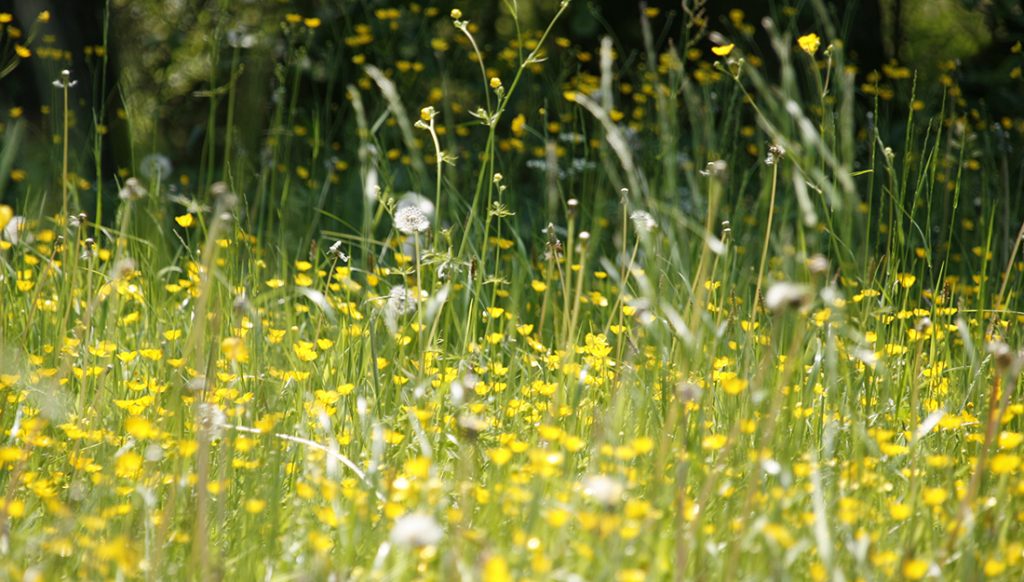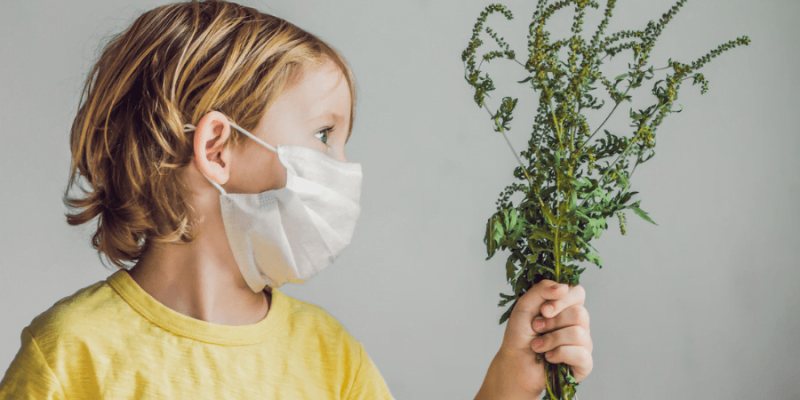We all love to walk barefoot on the soft green grass in our lawn during the morning and evening hours or enjoying a Sunday afternoon laying down over the green grass that makes you feel like a free bird.
However, the worst thing that can stop your mood is when you start developing itch in your body, even you start sneezing or your nose starts running.
Then, you realize that you have developed an allergy, and all this is the result of your allergy, so you need to put an end to your happy day.
It is assumed that the pollens that are present in grass usually create allergies. This can be a problem not only to you but to many people.
What is a Grass Allergy?

When you breathe in or come in close contact with any substance you are hypersensitive, you develop allergic reactions. It may be an itch in your body or redness and itch in your eyes or runny nose, or continuous sneezing.
The symptoms of an allergy are different from person to person. In general, grass allergy occurs when a person comes in direct contact with the pollen released by grass.
When we talk about pollen, many think it can only come from flowers or trees or weeds, but even grass pollen also exists. The pollens present in the grass are so light that they can easily travel and spread by wind. Some grass pollen which we can name is Orchard, Redtop, Bermuda, Kentucky bluegrass, and timothy grasses.
How Long Does the Suffering Last?
Allergies can be from a mild one to even a dangerous one. They can be for a few minutes too long hours; you never know that at what time it would end. If you are allergic to food or pets, you have an easy option: to avoid them, but with grass, it is not that easy.
Some people do not suffer from grass allergy regularly. Most of the time, people do not experience any allergic reactions until they turn into adults. Allergies can occur anytime and anywhere.
Even the duration of illness due to allergies differ from person to person. It has been found that a person who is allergic to grass is often affected most when the grass has been freshly cut as the bits get into the air very quickly, causing allergy to the person.
The Grass Pollen Season

It has been found that grass pollen levels rise beginning in the late spring during May and last till the summer months, but sometimes it has been observed that the grass pollen can even stay around till August.
Most Common Grass Allergy Symptoms
Among the common symptoms of grass allergy is Runny nose and itching of the throat, mouth, skin, or eyes. Some may experience teary or puffy eyes, sneezing, and coughing resulting in fatigue and headache. Even others may find it difficult to breathe.
Tips to Follow Before Mowing the Lawn
This is one of the most challenging tasks for a person with a grass allergy. You are stuck in such a situation where you can neither leave your lawn in bad condition nor can you take the risk of mowing it and putting yourself in a situation where your allergy gets triggered.
If there is no option left other than mowing your lawn by yourself, then you can surely think of the following tips before you jump into mowing your lawn:
- The first thing to do is to take your allergy medicines regularly but only under strict medicalhttps://www.organizewithsandy.com/how-to-start-your-own-garden/ supervision.
- Protect yourself from direct exposure by wearing an allergy mask. You can either go for a disposable mask used for one time only or go for a reusable one but be careful to wash it carefully after every use. Also, handle it carefully and if not using again, dispose of it safely.
- Even the clothes that you decide to wear while mowing your lawn is important. Try to cover yourself as much as possible. You can go for long sleeve shirts which will protect you from direct contact. Also, wearing long pants is highly recommended. By doing this, you add a layer of protection to yourself when pollen from the grass comes into direct contact with your skin.
- Try to mow your lawn frequently; it may sound a little absurd, but if you regularly keep an eye on your grass’s growth, it will release less amount of pollen.
- Do not mow your lawn during the early morning hours. It is always advisable to mow your lawn in the evening when pollen counts are known to be generally low.
- You may buy a mower with a built-in bag that reduces the mixing of pollen in the air and protects you from getting an allergy. The secret is to cut down on the source of the problem rather than find a cure once sick.
- When you spend the day outside after mowing your lawn, don’t forget to get into a fresh set of clothes.
- After mowing your lawn, always take a shower as soon as possible.
- You can also plant only female trees and shrubs using rocks, which may help in making your yard a pollen-free area.
- If you have severe allergies, you can also go for low pollen or no pollen grass available in the market.
A Risk-Free Living
It is often observed that most people who suffer from grass allergy can easily manage themselves from getting allergic by avoiding direct contact with the pollen released by the grass. Some have gone with artificial grass which eliminates the problem, and today’s turf looks amazingly realistic.
An asthmatic person or suffers from decongestion should always keep their medicines in hand and take necessary precautions before they step outside, either to spend some time sitting or lying on the grass or while mowing their lawn.
It is very much impossible to set an allergy-free environment. There are some other substances that each one of us is allergic to. Still, the most important thing is identifying the ones we are allergic to and taking the necessary steps to safeguard ourselves.
Finally, before trying out any medicines, we should always seek medical advice, and only on his or her advice take medicines. Do not be in a hurry to swallow any pill at hand. Do follow your physician’s advice.
If medicines are the only solution, then remember that the intake of allergy medicines may make you feel drowsy. So it is always advisable to avoid doing any hard work after taking these medicines. Always take adequate rest and do not exert yourself.
Final Words
If the above-written article helped you, you could even share it with your loved ones so that those prone to grass allergy can benefit from it. I hope this article helped you in getting some answers to the questions in your mind.
During an allergic attack, the pain of a person cannot be described using pen and paper, so it is always advisable to take care of yourself and your near and dear ones who suffer from grass allergy.










Comments